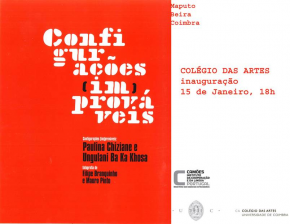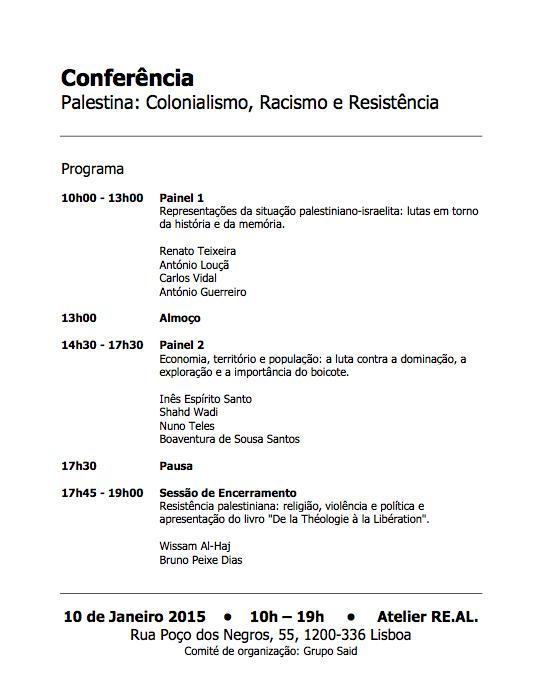janvier 2015
Postes publiés en janvier 2015
Archives
Auteur
- adrianabarbosa
- Alícia Gaspar
- arimildesoares
- camillediard
- candela
- catarinasanto
- claudiar
- cristinasalvador
- franciscabagulho
- guilhermecartaxo
- herminiobovino
- joanapereira
- joanapires
- keitamayanda
- luisestevao
- mariadias
- marialuz
- mariana
- marianapinho
- mariapicarra
- mariaprata
- martacacador
- martalanca
- martamestre
- nadinesiegert
- Nélida Brito
- NilzangelaSouza
- otavioraposo
- raul f. curvelo
- ritadamasio
- samirapereira
- Victor Hugo Lopes
Data
- avril 2025
- avril 2024
- mars 2024
- février 2024
- janvier 2024
- décembre 2023
- novembre 2023
- octobre 2023
- septembre 2023
- août 2023
- juillet 2023
- juin 2023
Étiquettes
- ...
- 13 ways of looking at a blackbird
- Africa in Motion
- Aida Gomes
- artista visual
- As Margens dos Mares
- Avenida da Liberdade
- cabo verde
- Diogo Bento
- feira de arte contemporânea
- iluminismo
- Kabalindadi
- Kenya
- literatura moçambicana
- músicos
- política
- relectures contemporaines
- Soly Cissé
- tropical
- West Africa
Les plus lus
- Paula Rego: Manifesto
- Quis saber quem sou (de Pedro Penim) | Ensaio de imprensa - 10 abr, 15h
- DJINTIS, 1º Festival Internacional de Artes Cénicas de Bissau
- Fora de Jogo- festa de lançamento
- Ciclo de Conferências Tramas da Memória: espaços para contar
- Lisboa Afro-Atlântica
- 60th International Art Exhibition of La Biennale di Venezia curated by Adriano Pedrosa
- Abril Independente | Programação Especial Abril na Casa Independente
- Gisela Casimiro: in this new picture your smile has been to war
- Ambiguidades e ambivalência sobre a memória colonial: o caso de Dundo, Memória Colonial
Publié sous un Contrat Creative Commons
 A riqueza literária e cultural das obras destes autores incita não apenas à leitura das obras mas também ao estudo de relações entre a escrita literária e outras práticas artísticas.
A riqueza literária e cultural das obras destes autores incita não apenas à leitura das obras mas também ao estudo de relações entre a escrita literária e outras práticas artísticas.

